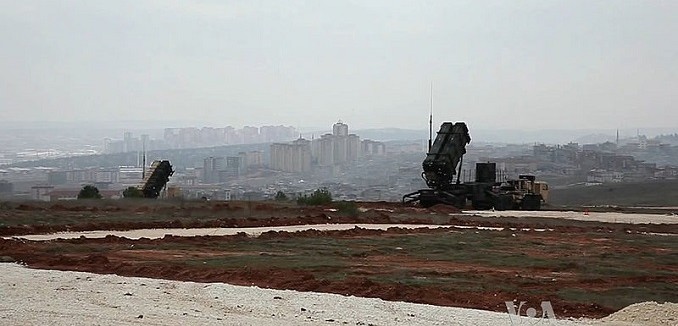Turkey is reportedly planning to purchase air defense systems from China, an announcement that has been met with consternation, and along with troubling authoritarian conduct at home, is raising questions about Turkey’s true intentions, and increasingly about its suitability as a NATO ally:
“That would certainly leave many of us speechless,” said one senior diplomat from a NATO country, speaking of Turkish plans to buy anti-aircraft systems from China. “Turkey has every right to choose its own air defense system but we do not quite understand the logic of opting for a Chinese system with no interoperability with the existing [NATO] assets.”
A NATO ally defense attaché in Ankara said that deploying a Chinese air defense system to protect Turkish airspace could have political repercussions. “Questioning Turkey’s geopolitical trajectory would then be legitimate,” he said.
An Ankara based defense analyst calls Turkey’s current defense plans “grandiose and unrealistic.”
Ankara has attempted to balance its reliance on NATO – there are NATO Patriot batteries deployed along the Turkey-Syria border, part of the alliance’s efforts to prevent the Syrian conflict from spilling into Turkey – with an impetus to chart an independent foreign policy – one increasingly at odds with the rest of the alliance.
The Justice and Development Party (AKP) of Islamist strongman Recep Tayyip Erdogan had for years tried to chart a so-called “zero problems” policy, which the Erdogan government used in part to engage rogue regimes such as Bashar al-Assad’s Syria and Mahmoud Ahmadinejad’s Iran.
That policy collapsed as the Syrian war deepened and spiraled regionally, the government increased its support for Hamas, the Muslim Brotherhood and al Qaeda-linked terror groups, largely reversed its longstanding ties to Israel, and jailed journalists, military brass, politicians and judges at home.
Turkey is not just increasingly antagonizing NATO members, it has also alienated itself from its moderate Arab regional neighbors allied with the United States.
“We have pretty fundamental disagreements on policy. We simply believe in different philosophies,” a senior Arab official, speaking of Turkey and its Sunni extremist allies, told Jay Solomon of The Wall Street Journal earlier this spring. “We believe in secularism and they support political Islam,” he added. “We believe in picking sides; they believe in picking both sides.”
As Solomon reported:
Divisions among the U.S.’s closest Arab and Muslim allies are imperiling the Obama administration’s efforts to forge unified responses to crises in the Middle East, including Syria’s civil war and Egypt’s economic turmoil…
The regional divisions, described by senior U.S., European and Arab officials, are driven by religious, political and economic rivalries that have been exacerbated by the revolutions and rebellions that have swept across the Mideast and North Africa since early 2011.
“There is no coherent Arab coalition,” a senior U.S. official said Monday, adding that the divisions now could spur a power struggle in the future.
In one camp, said the officials, are Qatar and Turkey, whose leaders are supportive of a political Islam that is gaining hold in Egypt, Syria, Tunisia and Libya. Qatar and Turkey have shown particular support for the Muslim Brotherhood, the Islamist movement whose politicians now dominate the governments in Cairo and Tunis and are active in Syria’s opposition.
A second camp is led by Saudi Arabia, the U.A.E. and Jordan, Sunni monarchies whose royal families are hostile toward the Muslim Brotherhood and its potential for destabilizing their own political and economic systems, said these officials.
[Photo: Guest2625 / Wiki Commons]




